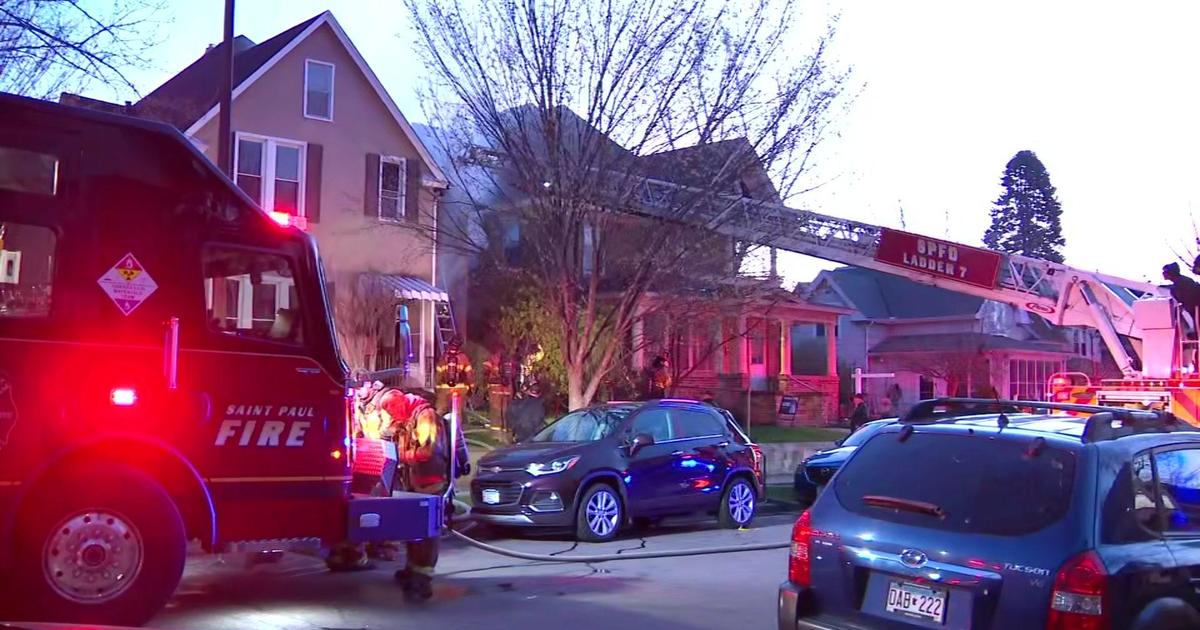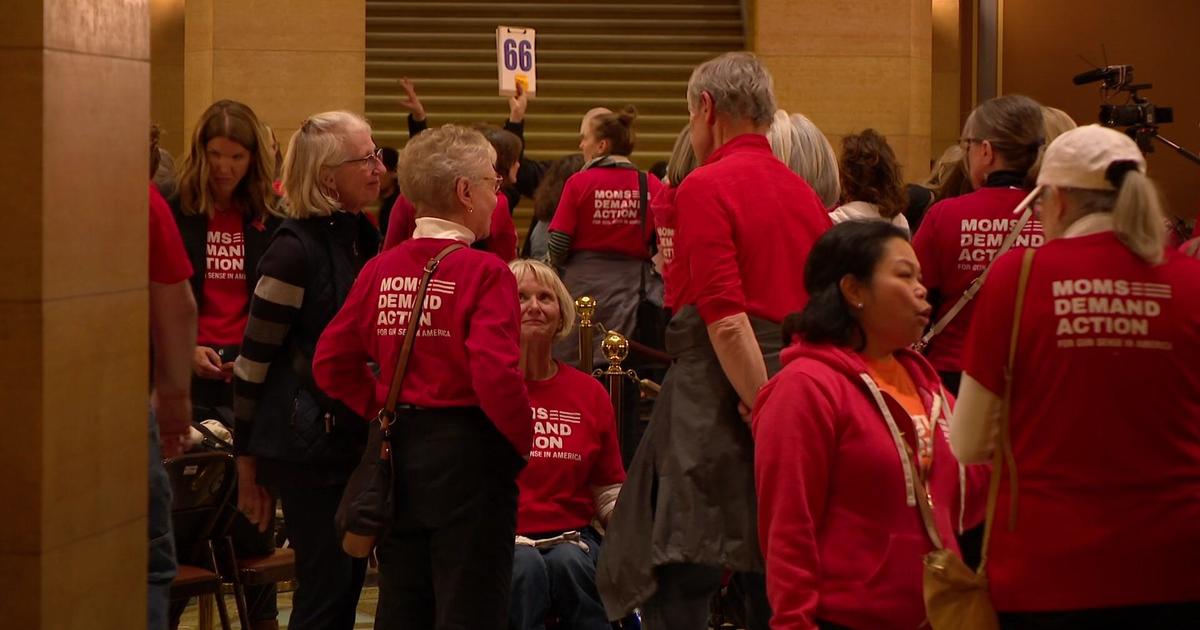Gap On Budget Between Dayton, Lawmakers Persists
ST. PAUL, Minn. (WCCO) -- The split over taxes and spending continued Tuesday as Minnesota Gov. Mark Dayton and top GOP lawmakers met again without resolving their fundamental differences.
Pressure is mounting, with the Legislature constitutionally required to adjourn by Monday.
The divide pits the Democratic governor's latest proposal to raise $1.8 billion in taxes, mostly from a new top income tax bracket, against a Republican plan to erase a $5 billion deficit by slicing into projected spending on health care, social services, local government checks and higher education. A day earlier, Dayton downsized his tax plan by almost half to continued Republican rejection.
The governor railed against what he called GOP lawmakers' "intransigence" during an hour-long interview on Minnesota Public Radio.
"How do you negotiate with people who are completely unreasonable? Again, I welcome anybody's advice," Dayton said.
He added: "Their budget is so extreme and their unwillingness to compromise to me is just unfathomable."
The GOP-controlled House voted down the higher taxes 73-60, with one Democrat joining all the chamber's Republicans, to demonstrate resolve against raising taxes. Both legislative chambers also began voting on budget bills that appear destined for vetoes, including funding packages for public schools and public colleges and a tax bill.
The Republican-controlled House passed the tax bill on a 71-58 vote early Wednesday. The bill completely phases out state aid to the cities of Minneapolis, St. Paul and Duluth over the next few years.
The Senate approved an omnibus jobs bill Tuesday night on a 37-27 vote. That measure includes about $168 million for the state's Department of Employment and Economic Development, the Department of Labor and Industry and the state's Housing Finance Authority.
The Senate also approved a separate $1.7 billion judiciary and public safety funding bill on a 36-28 vote.
Dayton said he wouldn't sign any of the budget bills without an overall agreement.
Less than six hours after announcing that direct discussions on budget bills between Dayton's top advisers and lawmakers would start, Senate Majority Leader Amy Koch said she had "concerns" that the administration was failing to engage in "meaningful negotiations."
"We need to see some real movement and real discussions," she said.
Added Deputy Senate Majority Leader Geoff Michel: "I don't think he's serious about getting the job done. I don't think he's serious. What he said to us today among some other things was that he would hold out until 2012 for a tax increase."
Dayton said during the MPR interview that he felt tricked after signing a small budget bill for farm programs last month, because a separate budget bill would cut the Agriculture Department's funding. "We got fooled," he said.
Dayton is expected to address the Republican lawmakers in a caucus meeting in the coming days. Koch said the majorities want the chance to explain their position to him and let him pitch his tax proposal.
Republicans characterize their $34 billion budget plan as a compromise because they contend the state would spend more overall than in the previous budget, not counting federal stimulus dollars. Some GOP lawmakers wanted to hold out for a spending decrease.
Both sides are setting the other up for blame if the session spills into overtime, potentially leading to a shutdown if a new budget isn't in place by July 1.
"That's his choice, not ours," House Speaker Kurt Zellers said of Dayton.
"I am pessimistic, because they refuse to compromise," Dayton said.
Dayton said his administration would start preparing for a shutdown in a week, on the day after the adjournment deadline, if there's no budget deal.
The governor described his budget plan as "basically tax free" because it wouldn't raise property or income taxes for 98 percent of the state's population. Income taxes would go up for individuals making more than about $180,000 a year and couples earning more than $300,000. He contended that GOP-backed cuts to local government aid would lead to more than $400 million in local property tax increases falling on the middle class, seniors and others with limited means.
On the House floor, the debate over the taxes illustrated the philosophical gap between the two sides.
"It's a choice between trusting Minnesotans to keep what they earn and what they own, to spend it to pursue their dreams, to fortify their dreams and to help their neighbors in need voluntarily; or to have government take it to disburse as they see fit," said Rep. Doug Wardlow, R-Eagan.
Democrats including Rep. Ann Lenczewski, DFL-Bloomington, characterized Dayton's approach as "centrist."
"It's asking those doing the best -- those doing significantly better than most Minnesotans -- to pay a little bit more," she said.
Dayton also said he won't sign two bills adding new abortion restrictions, one banning public funding for the procedure, the other outlawing abortions starting at 20 weeks after conception.
(© Copyright 2011 The Associated Press. All Rights Reserved. This material may not be published, broadcast, rewritten or redistributed.)



